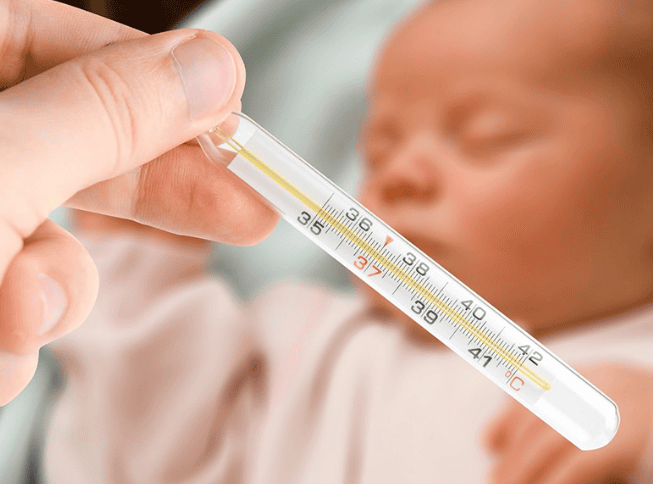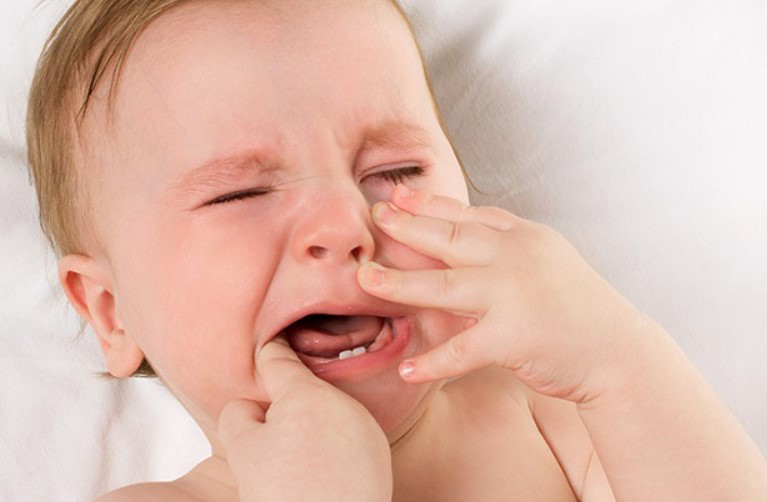What is denture renewal and is that important for your oral health? Let’s find out in the below article!
When you should get denture renewal?
- Your dentures are loose or falling out.
Dentures that fit well should provide enough friction to stay securely in place when you talk and eat. The close contact between your gums and the denture is usually sufficient to keep it stable during your regular daily routines.
If you experience issues with your dentures, such as looseness or frequent dislodging, it’s crucial to seek professional assistance to have them adjusted or replaced. While temporary relief can be achieved with denture adhesive, it’s not a long-term solution and should not replace proper dental care.
- You’re Struggling to Speak Clearly
If you’re having trouble speaking clearly, it could be due to ill-fitting dentures. Loose dentures can cause slurred speech and a “slushy” sound. To speak clearly, you may need to have your dentures adjusted or replaced.
- Your Dentures Are Making You Uncomfortable Or Have Damaged Your Gum Tissue
Well-fitted dentures that are in good condition should not cause any discomfort or pain while chewing or biting. However, if you experience any pain or notice sores, lesions, or changes in the health of your gums, it may be time to consider replacing your dentures or having them refitted. It’s important to see a dentist promptly to address any issues and ensure your oral health.
- Your Dentures Are Damaged Or Discolored
If your dentures have chips, cracks, or loose teeth, they will need to be replaced. Discoloration is also a common reason to replace dentures, as they can become yellowed or stained over time, especially if you consume beverages like coffee, wine, or tea while wearing them. While proper care can help prevent discoloration, replacement may be necessary if it occurs.
Why you should get denture renewal?
Managing edentulous patients can be challenging, especially when they have had negative experiences with denture-wearing in the past. Despite best efforts, some patients may struggle to adapt to their new dentures, leading to repeated adjustments or remakes, which can be costly for both the patient and clinician. These challenges can result in frustration for both parties, and it is essential to manage patient expectations to minimize the risk of negative experiences.
1. Health-related
Dental care for elderly patients is a significant issue in dentistry. Developed countries have studied the health and dental needs of their elderly population to address this problem. However, developing countries lack a worldwide system to organize social services based on the needs and demands of elderly patients, despite understanding their healthcare needs. This highlights a need for improved systems and resources to address the dental needs of elderly patients globally.
Although oral disorders are not typically life-threatening, they can significantly impact the social and psychological well-being of the elderly population. Improved oral health is often believed to enhance the quality of life for seniors.
Oral care can become challenging for older adults due to disabilities and handicaps that may impede their ability to maintain good oral hygiene. As a result, poor oral health and the development of oral diseases in the elderly can pose a significant public health concern.
Research on the health of older adults often neglects their oral health, and dental treatments are often not considered a priority. Studies have found that a significant percentage of edentulous individuals have poorly fitting dentures, but it is unclear whether this is due to natural changes in the mouth or errors during denture construction.
2. The defaults of denture base
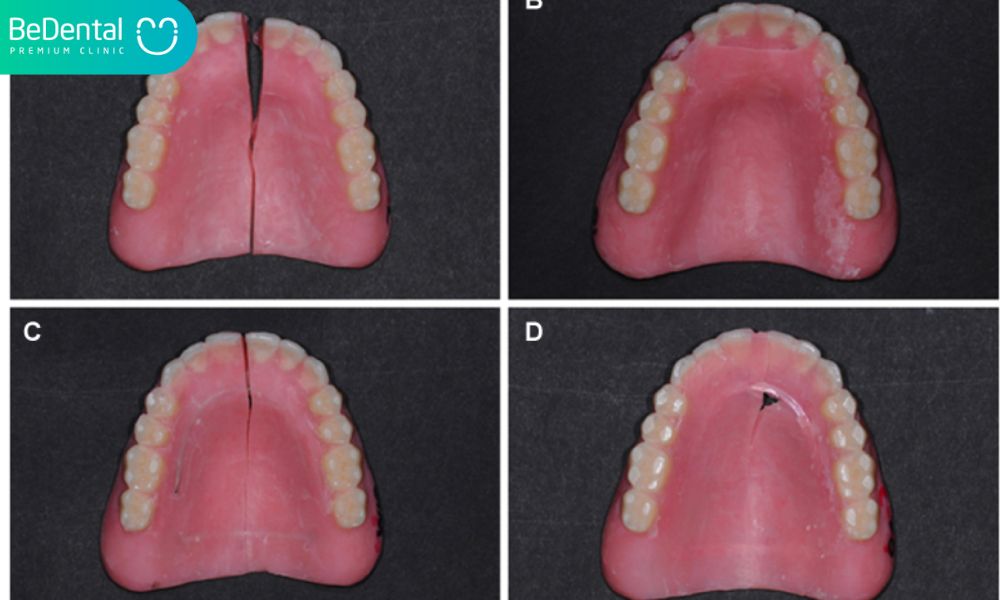
Denture fractures can occur from external factors such as dropping the dentures on hard surfaces, or internal factors such as fractures during normal use. In determining the cause of fracture, the patient’s explanation is often the primary source of information.
Denture fracture can occur due to various reasons such as incorrect placement of artificial teeth, pressure from natural teeth, poor stability, wear and tear over time, and the presence of certain anatomical structures in the mouth.
Denture defaults can occur during laboratory procedures such as using a thin denture base, incorrect placement of artificial teeth on the ridge, incorporating metal strengtheners, and including inclusions like plaster or air bubbles. These defects can cause porosity, deep scratches, and act as a stress raiser which may lead to denture fracture.
3. Residual ridges-related problems
Dentures are expected to perform in a constantly changing environment. Post-insertion complications have been categorized by different researchers. Heartwell and Rahn classified such problems as being unsuitable for the surrounding oral environment, hindrance in chewing, disharmony with functions such as speech, breathing and swallowing, dissatisfaction with appearance, and deterioration of the supporting bone or soft tissues.
Inadequate consideration of the proper position of teeth and flange shape and contour can lead to unstable and unsatisfactory dentures, regardless of their skillful design and construction. Improper tooth placement and arbitrary shaping of polished surfaces can negatively impact the success of the prosthesis.
4. The defaults of Occlusal
It takes around 6-8 weeks for the masticatory muscles to adapt to new dentures and establish new memory patterns. After one year of using new dentures, patients in a study by Goiato et al. showed improved masticatory efficiency. Additionally, fitting new dentures and correcting the occlusal relationship can positively impact head and cervical spine postures, relieve CMD symptoms, and benefit the masticatory muscles.
Incorrect vertical dimension and centric relation are commonly associated with TMD (temporo-mandibular disorder), while a reduction in vertical dimension can lead to cheek biting due to the collapse of cheeks into the occlusal area.
Patients should be educated that the chewing efficiency of the denture wearer is less than one-sixth that of the subject with a natural dentition. The assessment and reestablishment of the occlusal vertical dimension (OVD) are considered important factors in the treatment of complete denture wearers. The long-term use of a complete denture can result in jaw displacement due to abrasion of the artificial teeth and residual ridge resorption, causing esthetic complications.

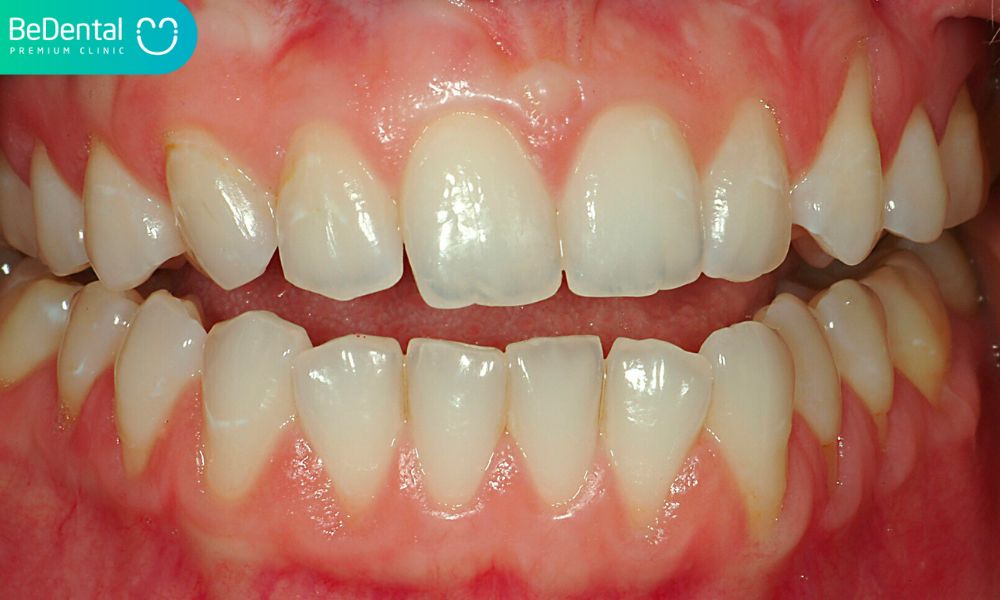
When reestablishing the OVD with denture renewal for patients with old dentures and incorrect OVD, it is important to make conservative changes and have a trial period with the option of an interim prosthesis. This gradual process allows for assessment of the patient’s tolerance, esthetics, and phonetics at the proposed restored OVD.
Occlusal checking should be performed via a remount procedure because denture base materials and fabrication procedures cannot provide dimensionally accurate complete dentures.
Deflective occlusal contacts of denture teeth in centric occlusion can be eliminated by selective grinding and by tooth-guided excursive movements.
5. Technical procedures
It is not uncommon for dentists to encounter patients who are content with their dentures despite them being poorly fitting, unstable, and misaligned. However, research has shown that patients’ satisfaction with their dentures can shift significantly over time.
Adaptive capacity plays a significant role in patient satisfaction with dentures. However, this does not justify subpar prosthodontic work. The need for adaptive capacity can be reduced by creating technically sound dentures.
One common mistake is using inaccurate burn out temperatures and times when casting. If the temperature is too low or the time is too short, the investment won’t expand enough, causing the casting to fit too tightly. On the other hand, if the temperature is too high, the investment may decompose, leading to a rough and pitted casting.
Denture Renewal Procedure
- Denture Renewal Procedure: Pre-denture healthy visit:
Before getting new teeth, the patient’s gum and soft tissue health will be evaluated during the first visit. This examination will include X-rays to ensure there are no underlying bone issues. Additional procedures, such as removing excess tissue or reshaping the bone, may be recommended during this phase to ensure a better fit for the denture.
At the first visit, we take a mold or cast of the upper and lower gums to begin the denture making process. It’s best to get the impression without the teeth to ensure a perfect fit for the new dentures. We’ll also discuss with the patient important aspects such as the size, shape, and color of the new teeth.
- Denture Renewal Procedure: Denture length and plane adjustment:
During the second visit, we focus on the proper alignment and length of the new teeth to ensure an ideal fit. This step, also known as the center jaw relationship (CJR) or maximum mandibular retrusion (MMR), involves reviewing the crucial relationship between the upper and lower jaw. Using a loose-fitting denture and a wax rim, we ensure the perfect bite to prevent any clicking during talking or chewing.
- Denture Renewal Procedure: Denture wax try-in:
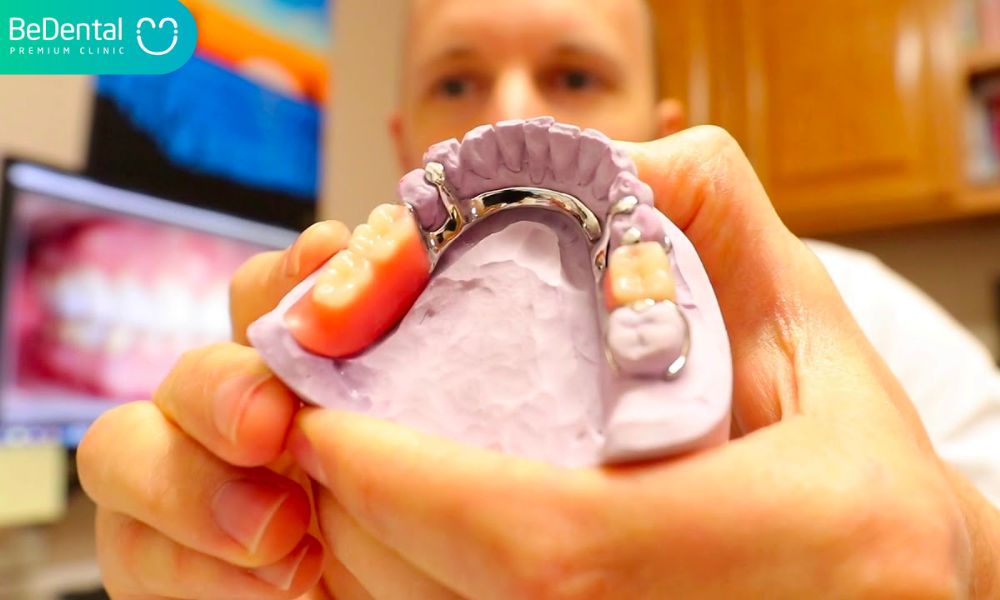
At the third visit, we will try on the final plastic teeth, which are set in wax and fit loosely on the gums. This is the closest we will get to the actual denture, allowing us to make any final adjustments to size and appearance before sending it back to the laboratory for the finishing touches.
More
Loose teeth and the 3 most common causes
Teeth cleaning procedure and 4 expert advices
Dental Implants and Dental Bridges: What is the difference?
Over-the-counter teeth whitening and 7 common questions
Jaw fatigue: 4 things you should know


 English
English 한국어
한국어 日本語
日本語 中文 (中国)
中文 (中国)

